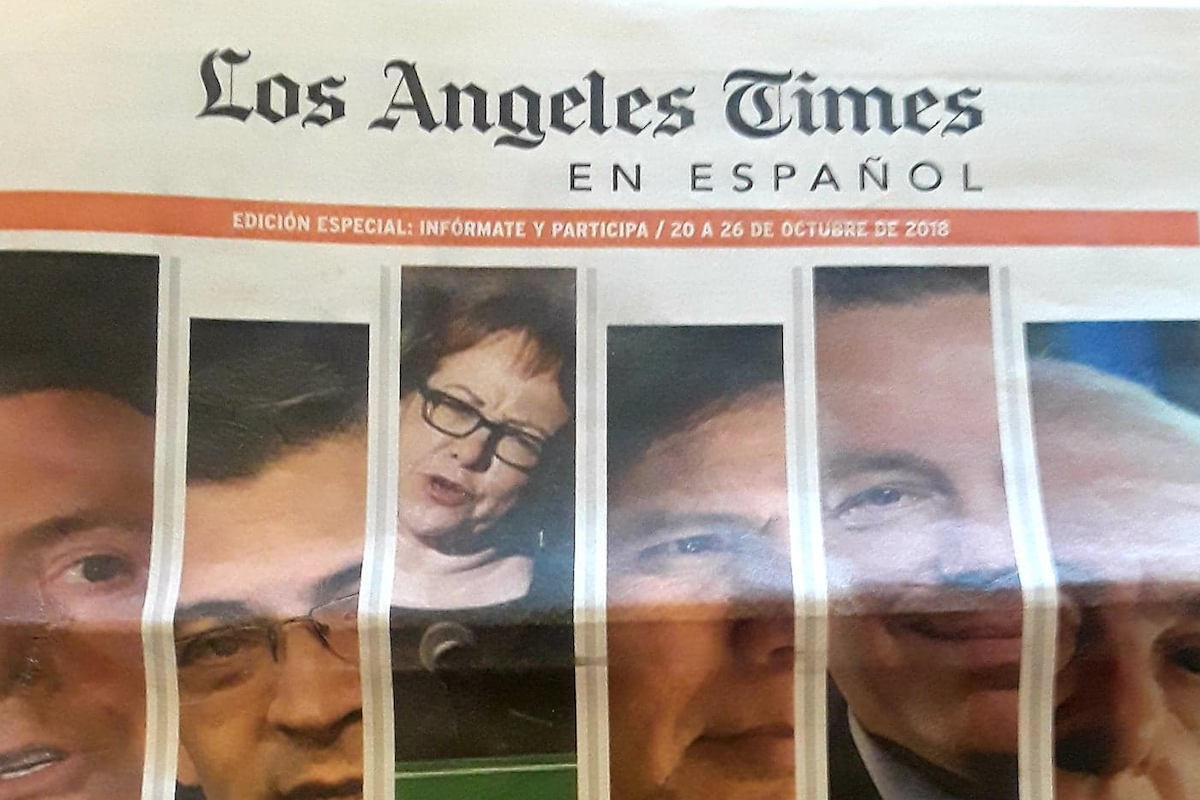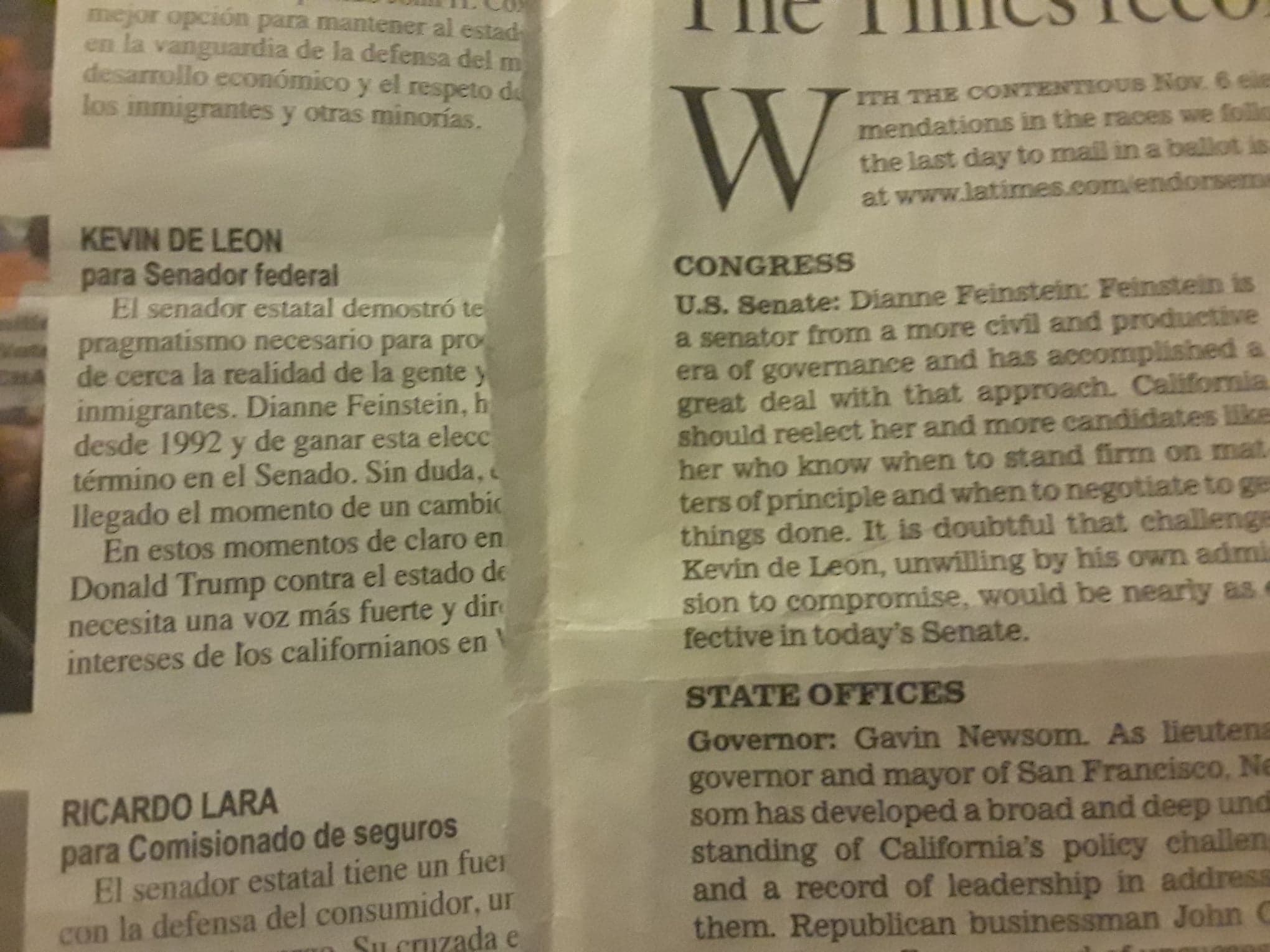In specific response to Pilar Marrero’s October 31 Latino Rebels story about why the Los Angeles Times published different political endorsements in English and Spanish, a November 2 post by the Times issued a formal apology about the confusion such endorsements caused readers.
“We are proud of The Times editorial board’s endorsements, which were reached after a thorough vetting and reflect the position of the paper, no matter what language they are translated into,” LA Times executive editor Norman Pearlstine said in the post. “We apologize for confusing readers by mistakenly publishing Hoy’s endorsements, rather than our own, in Los Angeles Times en Español.”


Front page of LA Times en Español voting guide for week of October 20.
The post, written by LA Times readers’ representative J.T. Cramer, began with a specific citing of Marrero’s story:
Last week, The Times was sharply criticized for publishing two different sets of endorsements, one in its English-language edition and one in the Spanish-language edition. That left readers and the candidates confused.
The discrepancy was first reported by local journalist Pilar Marrero on the website Latino Rebels. The story was later picked up by other news outlets including the New York Times, Breitbart, KNX and KCBS.
“Why would the same newspaper, with a mainstream version in English and another version in Spanish covering the same geographical area and diverse communities, endorse different candidates for the same federal, state and local elections in each language?” Marrero wanted to know.
Many of our readers asked the same question. Some suggested that The Times was consciously trying to ingratiate itself with two different constituencies.


The de León endorsement in Spanish (left) and Feinstein endorsement in English (right).
The post then explained how the LA Times has a LA Times en Español version and also owns Hoy Los Angeles. The Hoy Los Angeles endorsements were mistakenly printed in the LA Times en Español, also noting that it had revised the Spanish-language endorsements online:
The Los Angeles Times endorsements should have run online and in print in Los Angeles Times en Español. Hoy’s endorsements should have run separately on its website and in its print edition.
But instead, the Hoy endorsements appeared online under Los Angeles Times en Español.
When the mistake was discovered, the headline was changed to reflect that the endorsements were Hoy’s, and a link was provided to The Times’ recommendations. However, the print version of Los Angeles Times en Español had already been distributed containing Hoy’s endorsements.


